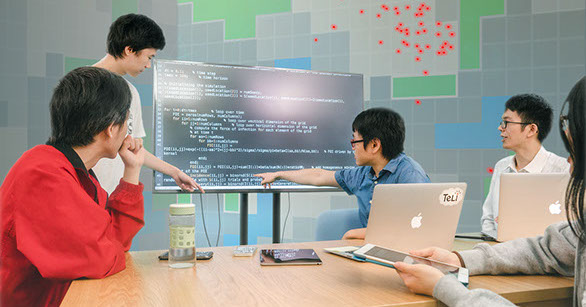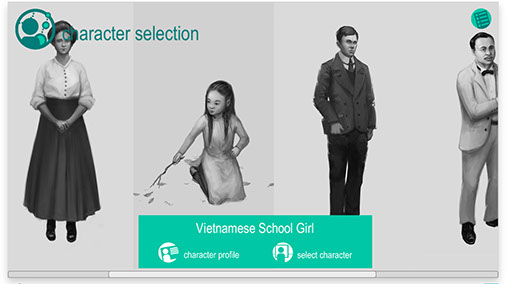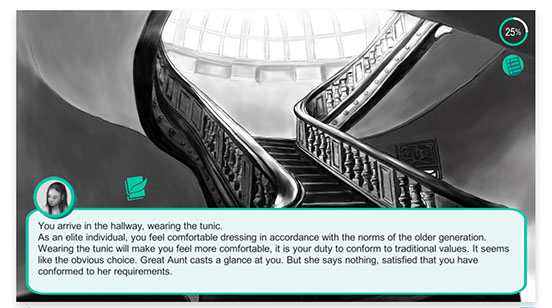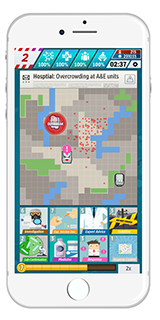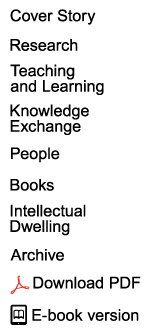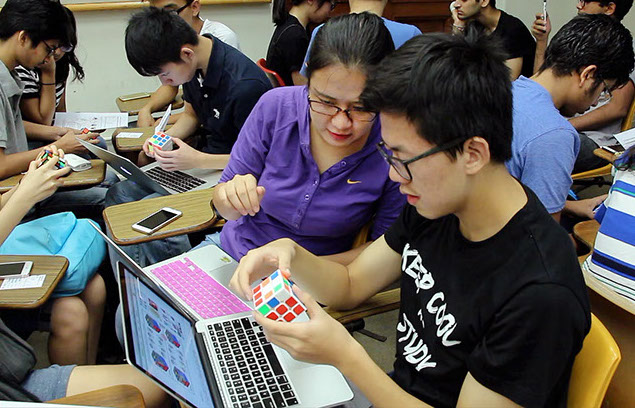
At the start of every course, experienced teachers encounter a conundrum: how can they change up the same set of lectures they have been giving for the past five, 10, or 20 years, and still ensure students get the content and contact time they are due?
To Professor Ricky Kwok, Associate Vice-President (Teaching and Learning), the answer lies in technology. Whereas some teachers would ban phone use in the classroom, he embraces phones and makes them a tool of learning. Fittingly, he is leading the Technology-Enriched Learning Initiative (TELI), which was set up last autumn to provide an unprecedented level of support to teachers.
TELI has about 30 staff including software engineers to help turn content into apps, games and other technological forms that would otherwise be too time-consuming for teachers or beyond their capabilities.
“Our role is to empower teachers,” he said. “They can still do things the old way but now we can support them to apply e-learning, too.”
Professor Kwok sets an example for them through the Common Core course he teaches on algorithms. Last year he put all of his lectures online, asked students to watch them before coming to class, and during class had them solve puzzles based on what they learned in the lectures.
For example, in one class students used algorithms to solve Rubik’s cube. They had to work in groups of four or five, compete with other groups, film their efforts using their phones, and produce a five-minute video explaining how they solved the problem, on which they were assessed.
“Once I uploaded the lectures, I had to give students a reason to come to class which was on a Saturday,” he said. “Assessment drives learning so there had to be something they were assessed on. The activities are also designed to reduce free-riding so everybody in the group has to be doing something. And having them collaborate and compete against other teams is another way to motivate them.”
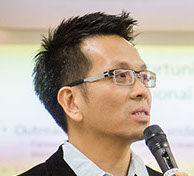
![]() Our role is to empower teachers.
Our role is to empower teachers.
They can still do things the old way but
now we can support them to apply
e-learning, too. ![]()
Professor Ricky Kwok
More than just games
Professor Kwok calls this the ‘gamification’ of learning. Another example is the Epidemics MOOC [massive open online course] on edX led by the Dean of Medicine, Professor Gabriel Leung, in which students try to contain the spread of a virus using the knowledge they have learned about different spreading models and strategies for such things as vaccination programmes and communications.
But e-learning is not only about games. For instance, TELI developed an app for the Centre for Applied English Studies that helps research students write their theses – they type in a word and see how it was used in previous HKU theses, particularly in their field.
Professor David Pomfret in History has also made use of e-learning with a higher aim than testing knowledge or making learning more interesting. Students role-play characters in a historical period and use their learning of that period to evolve their character along different paths, for instance by having them become politically engaged.
“The intention is not to coddle the students or ‘gamify’ their learning. Instead I hope to draw them in and package difficult or not obviously relevant but valuable material in new ways that might motivate them to engage with it,” he said. “I also want to encourage them to see themselves as having a stake in history, and to recognise their right to challenge or critique other (e.g. state-sponsored) historical narratives.”
Labour-intensive
Needless to say, such projects are labour-intensive for teachers. TELI provides software development, video production and other support, but the number of requests and ideas from across the University has been overwhelming. Professor Kwok said they were also trying to build capabilities at the faculty and department levels through workshops and seminars. The Faculties of Dentistry, Education and Medicine have already set up their own small e-learning units.
Ultimately, the goal is to contribute to a change of culture towards e-learning. It’s a long process, as Professor Kwok witnessed during his own student days at HKU when PowerPoint was being introduced.
“There were two groups of teachers, those who used transparencies and those who used PowerPoints,” said Professor Kwok. ”At first most teachers still used transparencies, and we students saw their resistance to change. But today, how many of us are still using transparencies?
“That change happened because people come and go and because there are leaders, like the Dean of Medicine and the Vice-President for teaching and learning, Professor Ian Holliday, who decided to demonstrate that things can get done if you want them to be done.”
Game Changer
Solving Rubik’s cube and containing an epidemic outbreak on a virtual map are now on the syllabus as HKU teachers embrace the ‘gamification’ of learning.
Back
In the massive open online course on Epidemics, students were asked to contain the spread of a virus using
their knowledge.
Via the e-learning platform, students role-play characters in a historical period and use their learning of that period to develop their character along different paths.
A game app which allows students to learn about fighting epidemics is under development.
Students working in groups of four or five to use algorithms to solve Rubik’s cube.
